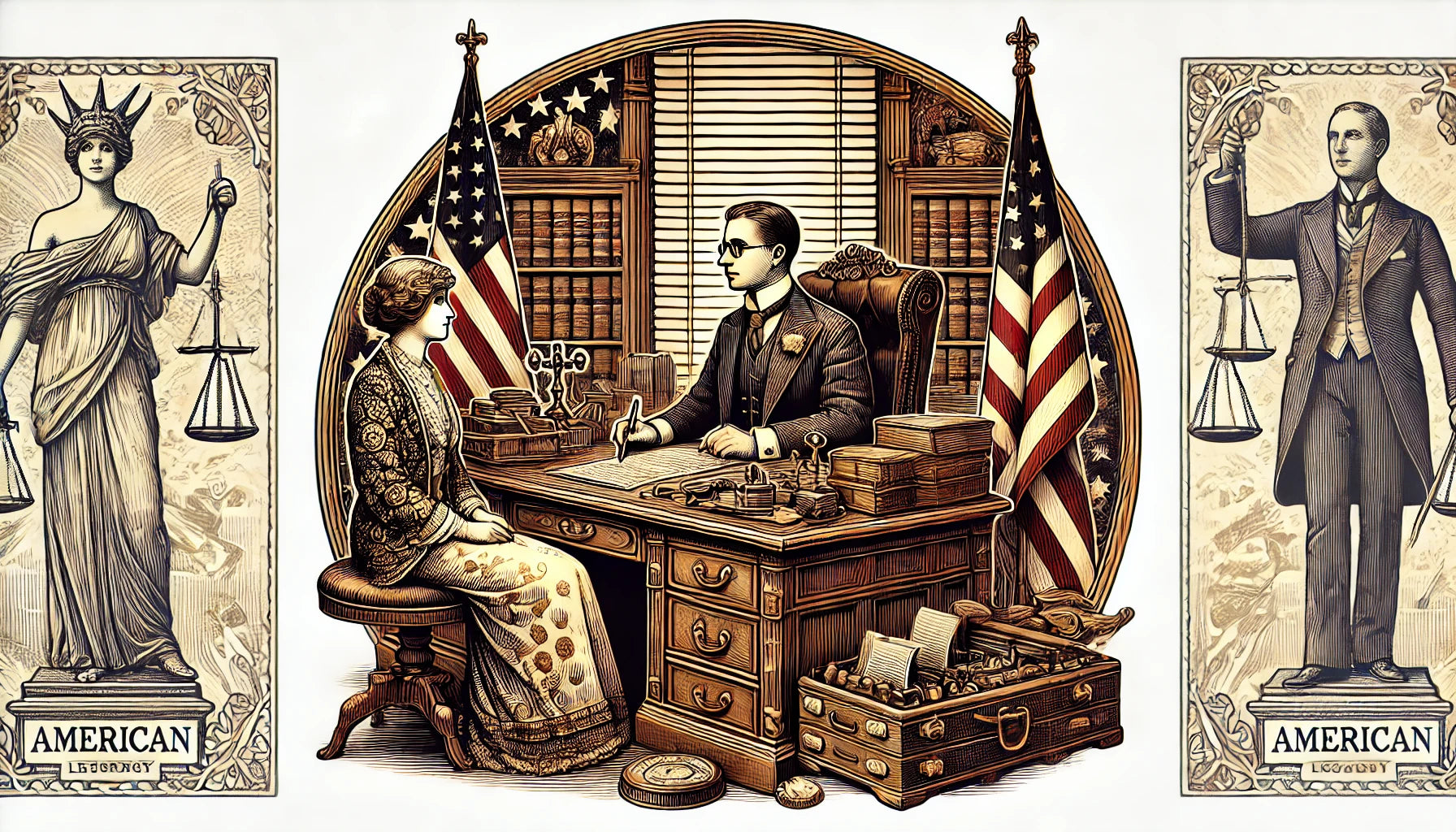Quick Overview
The United States Patent and Trademark Office (USPTO) has a straightforward rule: foreign trademark applicants must be represented by a US-licensed attorney. This requirement ensures compliance with US trademark laws, safeguards the system from abuse, and addresses issues caused by bad actors who file frivolous applications. These bad actors often seek to exploit US companies by forcing them to pay for trademarks or settle infringement claims. Let’s explore the implications of this rule and why it’s a vital safeguard for businesses.

Common Questions & Answers
Q1: Why does the USPTO require a US attorney for foreign applicants?
A: The rule ensures compliance with complex US trademark laws and addresses a rise in abusive practices, such as frivolous filings by foreign bad actors targeting US companies.
Q2: What do these “bad actors” do?
A: Some foreign entities flood the USPTO with frivolous trademark applications. They often aim to extort US businesses, demanding payment to relinquish trademarks or settle dubious infringement claims.
Q3: Can foreign applicants collaborate with any attorney in the US?
A: Yes, but the attorney must be in good standing and licensed to practice law in at least one US jurisdiction.
Q4: How does this rule protect US companies?
A: By requiring US attorneys, the USPTO ensures that filings meet legitimate legal standards and reduces the number of frivolous claims entering the system.
Q5: What are the penalties for bypassing this rule?
A: Applications filed without proper representation can be invalidated, and bad actors caught abusing the system can face severe consequences, including bans and fines.
![]()
Step-by-Step Guide
-
Research US Attorneys Specializing in Trademarks
Look for attorneys experienced in identifying and countering bad faith trademark practices. -
Establish Communication with a Trusted Lawyer
Select a US attorney who understands both compliance and strategies for dealing with potential abuses. -
Submit Comprehensive Trademark Information
Ensure your application is accurate and detailed to reduce the risk of disputes or challenges. -
Rely on the Attorney to Handle Filings
Your attorney ensures all legal standards are met and counters frivolous claims if necessary. -
Stay Vigilant Against Extortion Attempts
Work with your attorney to identify and respond appropriately to any bad-faith claims or demands.
Ready to take the next step? Schedule a consultation with Devin Miller to explore your strategy further.
Historical Context
In 2019, the USPTO introduced the US attorney requirement to address a troubling trend: foreign bad actors filing frivolous trademark applications. These entities exploited gaps in the system to target US businesses. For example, some would file applications for trademarks they knew US companies were likely to use, then demand payment to relinquish the rights or threaten infringement lawsuits.
This behavior caused significant harm, particularly to small and medium-sized enterprises (SMEs) that lacked the resources to fight back. The USPTO’s move was part of a global shift, with similar measures enacted in Canada, the European Union, and other regions to deter bad faith actors from exploiting IP systems. By mandating licensed US attorneys, the USPTO ensured stricter oversight, reducing the flood of fraudulent filings and protecting the interests of legitimate businesses.

Business Competition Examples
-
Amazon vs. Counterfeiters
Amazon often works with US attorneys to fight fraudulent trademark filings by foreign entities trying to block its product lines. -
Tesla's Brand Defense
Tesla faced challenges from bad actors attempting to register trademarks related to its technology. US attorneys played a critical role in defending its rights. -
Small Business Extortion Case
A small US coffee shop found itself targeted by a foreign filer who trademarked its logo and demanded a hefty payment to release it. Hiring a US attorney helped them invalidate the fraudulent claim.

Discussion
The USPTO’s decision to require US attorneys isn’t just about enforcing legal standards—it’s also a defense mechanism against bad faith filings. Frivolous applications not only clog the system but also create an unfair playing field for US businesses. Imagine a small startup suddenly facing a demand to pay thousands of dollars to use its own trademark, or risk an infringement lawsuit. These tactics are more than a nuisance—they’re a form of extortion.
The rule creates a higher barrier to entry for foreign filers, ensuring that only legitimate applicants proceed. It also allows the USPTO to hold US attorneys accountable for the quality and validity of applications, creating a robust check against abuse. While the requirement adds costs for foreign businesses, the benefits of a cleaner, more reliable trademark system outweigh the downsides.

The Debate
Pro-US Attorney Requirement
Ensures compliance with US laws, reduces fraudulent filings, and protects US businesses from extortion by bad actors.
Anti-US Attorney Requirement
Adds financial burdens for foreign applicants, potentially discouraging innovation and international competition.

Takeaways
- The US attorney requirement is a direct response to bad faith actors exploiting the US trademark system.
- Frivolous filings by foreign entities often target US businesses, forcing them to pay hefty sums or risk infringement lawsuits.
- US attorneys ensure filings are legitimate and meet strict legal standards, protecting the integrity of the system.
- While the rule increases costs, it creates a safer and fairer environment for US businesses.

Potential Business Hazards
-
Falling Victim to Bad Faith Filings
Without proper representation, US companies may struggle to combat fraudulent claims effectively. -
Invalidated Applications
Filings without a US attorney can be rejected outright, wasting valuable time and resources. -
Extortion Risks
Bad actors may use frivolous trademarks to pressure businesses into paying to continue their operations. -
Rising Costs for Small Businesses
Although the rule protects businesses, it can add financial strain to smaller companies seeking international expansion.

Myths and Misconceptions
-
"This rule has no real impact on fraud."
False. The rule significantly reduces the volume of frivolous applications by deterring bad faith actors. -
"Only big companies are targeted by bad actors."
Incorrect. Small businesses often bear the brunt of these schemes due to their limited legal resources. -
"US attorneys are just a formality."
Misleading. They play a critical role in preventing fraudulent filings and defending businesses. -
"This rule is anti-globalization."
No. It’s about protecting fairness and ensuring the integrity of the trademark system.

Book & Podcast Recommendations
-
"Trademark Protection in a Global Economy" by Irene Calboli
Explores strategies for safeguarding intellectual property in international markets. -
"IP Rights & Wrongs" podcast
Discusses real-world cases of trademark abuse and the impact of regulations like the US attorney rule. -
"Fraudulent Filings: How Bad Actors Exploit IP Systems" by WIPO
A deep dive into bad faith trademark practices and global efforts to combat them.

Legal Cases
-
USPTO vs. Fraudulent Filers
Several cases demonstrate how the new rules reduced fraudulent filings, saving US businesses from extortion. -
Amazon and Tesla Cases
High-profile companies used US attorneys to successfully challenge frivolous trademark claims. -
Small Business Advocacy Success
A landmark case where a US attorney helped invalidate a foreign bad actor’s fraudulent filing against a local business.

Share Your Expertise
Discover resources on intellectual property protection and learn how Miller IP Law can assist your business at Miller IP Law.

Wrap Up
The USPTO’s attorney requirement is more than a legal technicality—it’s a vital defense against bad actors abusing the US trademark system. By ensuring proper representation, the rule safeguards the interests of US businesses and creates a fairer, more reliable trademark environment.













